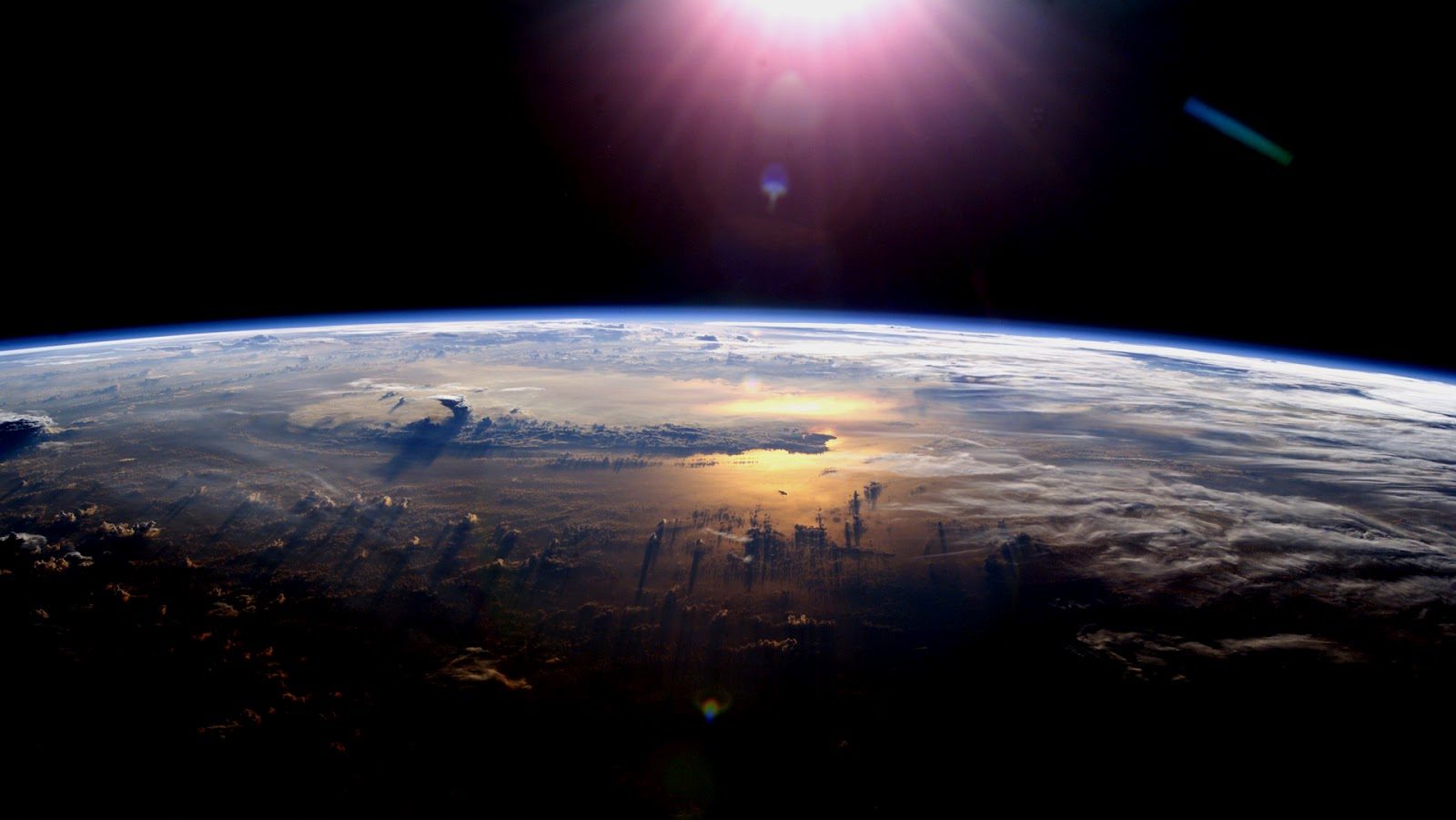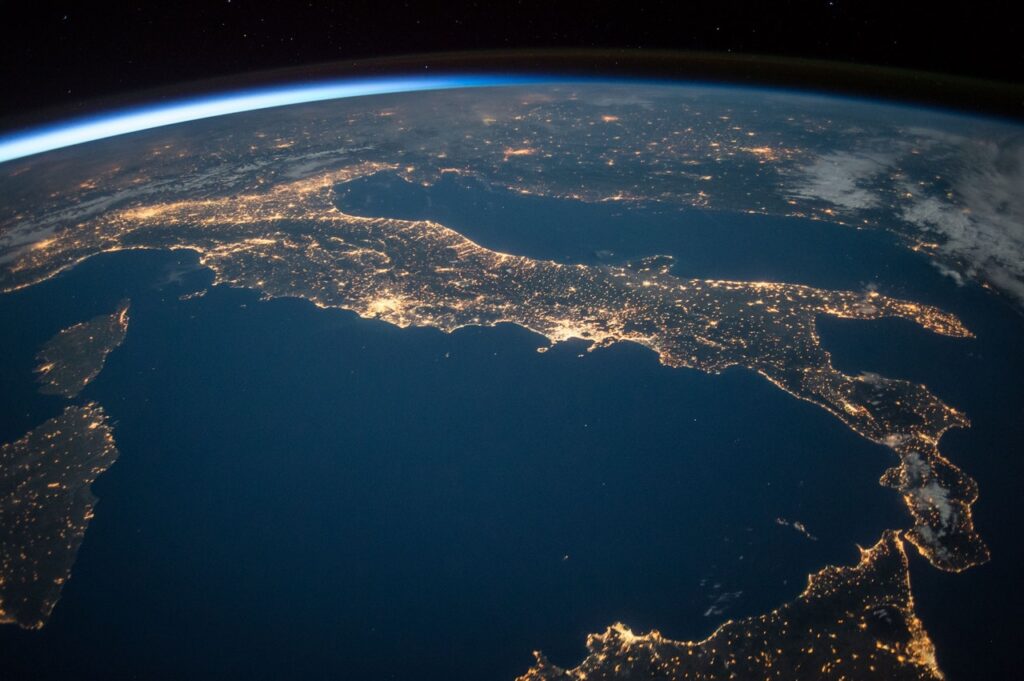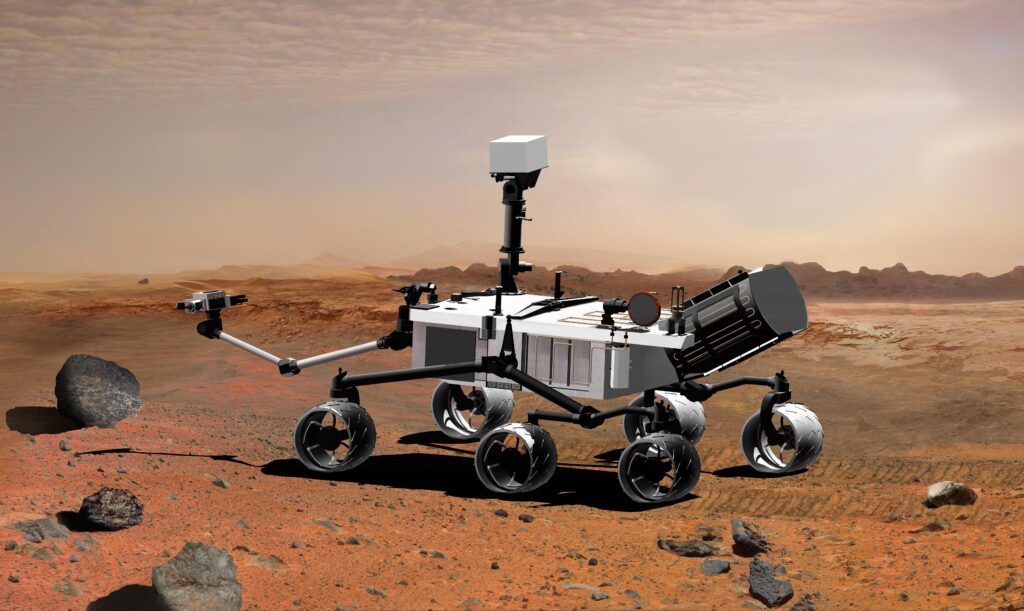Earth and Atmospheric Science
The EATS program provides three types of Bachelor of Science degrees for undergraduate students. Students can specialize into Atmosperhic, Geomatics (Earth) or Space Science and graduated with a Bachelor’s, Specialized Honours Bachelor’s and Double Major/Minor Honours Bachelor’s degree.
Explore each program individually to learn more about topics of study, job prospects and course outlines for Bachelor of Science programs in the ESSE Department.
The EATS program provides three types of Bachelor of Science degrees for undergraduate students. Students can specialize into Atmosperhic, Geomatics (Earth) or Space Science and graduated with a Bachelor’s, Specialized Honours Bachelor’s and Double Major/Minor Honours Bachelor’s degree.
Explore each program individually to learn more about topics of study, job prospects and course outlines for Bachelor of Science programs in the ESSE Department.
In the Bachelor of Science program, students complete 90 credits’ worth of courses.
• General Education in mathematics, computer science, foundational science and non-science education
• Major Requirements fulfilled by specialized courses in Earth, Geomatics, Atmospheric and Space Science
• Elective courses from upper years of their own choosing
minimum of 4.00 (C) GPA
• General Education in mathematics, computer science, foundational science and non-science education
• Major Requirements fulfilled by specialized courses in Earth, Geomatics, Atmospheric and Space Science
• Elective courses from upper years of their own choosing
minimum of 4.00 (C) GPA
In the Specialized Honours Bachelor of Science program, students take an additional 30 credits, and specialize in one of the three streams in the EATS program. Their degree comprises:
•The General Education requirements from the Bachelors of Science program
• Major requirements fulfilled by upper level courses specializing in their chosen stream
• A total of 120 credits’ worth of courses
• An overall 5.00 (C+) GPA
•The General Education requirements from the Bachelors of Science program
• Major requirements fulfilled by upper level courses specializing in their chosen stream
• A total of 120 credits’ worth of courses
• An overall 5.00 (C+) GPA
A student can graduate with an Honours Double Major BSc degree by combining an honours bachelor program in Earth and Atmospheric Science with any subject area
A minor requires the completion of at least 30 credits as specified on the academic calendar for the Earth and Atmospheric Science Academic Calendar.
A total of 120 credits’ worth of courses
An overall 5.00 (C+) GPA
A minor requires the completion of at least 30 credits as specified on the academic calendar for the Earth and Atmospheric Science Academic Calendar.
A total of 120 credits’ worth of courses
An overall 5.00 (C+) GPA
Students enrolled in a program in the ESSE department may complete additional certificates in two areas through our department.
Certificate in Geographic Information Systems & Remote Sensing
• A certificate offered jointly by the Department of Earth and Space Science and Engineering in the Lassonde School of Engineering, the Department of Geography in the Faculty of Liberal Arts and Professional Studies, and the Faculty of Environmental Studies
provides students with applied skills in image processing, technology used in remote sensing, processes and utilization of Geographic Information Systems
• Students complete 24 specialized credits as listed here
• This compliments a student’s undergraduate coursework as Specialized Honours students have the option to select 40 of their credits from courses offered throughout the department.
Certificate in Meteorology
• a one-year certificate offered by the Department of Earth and Space Science and Engineering in the Lassonde School of Engineering which provides students with a specialized education in atmospheric processes
• Graduates: this certificate can be completed by physical science or applied mathematics graduates
Current Students: students currently enrolled in a related program, or in Earth and Atmospheric Science, may also complete this certificate alongside their degree as long as they have completed at least 54 approved credits in the areas of physical science and mathematics
students complete 24 specialized credits as listed here
• This compliments a student’s undergraduate coursework as Specialized Honours students have the option to select 40 of their credits from courses offered throughout the department
minimum 4.00 (C) GPA in the 30 credits required for this certificate
Certificate in Geographic Information Systems & Remote Sensing
• A certificate offered jointly by the Department of Earth and Space Science and Engineering in the Lassonde School of Engineering, the Department of Geography in the Faculty of Liberal Arts and Professional Studies, and the Faculty of Environmental Studies
provides students with applied skills in image processing, technology used in remote sensing, processes and utilization of Geographic Information Systems
• Students complete 24 specialized credits as listed here
• This compliments a student’s undergraduate coursework as Specialized Honours students have the option to select 40 of their credits from courses offered throughout the department.
Certificate in Meteorology
• a one-year certificate offered by the Department of Earth and Space Science and Engineering in the Lassonde School of Engineering which provides students with a specialized education in atmospheric processes
• Graduates: this certificate can be completed by physical science or applied mathematics graduates
Current Students: students currently enrolled in a related program, or in Earth and Atmospheric Science, may also complete this certificate alongside their degree as long as they have completed at least 54 approved credits in the areas of physical science and mathematics
students complete 24 specialized credits as listed here
• This compliments a student’s undergraduate coursework as Specialized Honours students have the option to select 40 of their credits from courses offered throughout the department
minimum 4.00 (C) GPA in the 30 credits required for this certificate
ECCC Meteorology Awards
Deadline for Meteorology Awards scholarships is March 06, 2025, 1pm EST.
The ECCC Meteorology Awards – Scholarship program open to York students.
ENG Guideline
FR Guideline
Undergraduate Scholarships – CMOS-SCMO
Deadline for all CMOS scholarships is March 15, 2025.
The CMOS Undergraduate Scholarships ($2,000) *NEW value*
The CMOS Daniel G. Wright Undergraduate Scholarship ($2,000) *NEW value*
The CMOS – The Weather Network/MétéoMédia Scholarship ($3,000) *NEW value*
The CMOS The Weather Network/MétéoMédia Undergraduate Scholarship is awarded to a female student applying while in her penultimate year of an atmospheric science program at a Canadian university who intends to pursue a career in the fields of meteorology or atmospheric science.
Deadline for Meteorology Awards scholarships is March 06, 2025, 1pm EST.
The ECCC Meteorology Awards – Scholarship program open to York students.
ENG Guideline
FR Guideline
Undergraduate Scholarships – CMOS-SCMO
Deadline for all CMOS scholarships is March 15, 2025.
The CMOS Undergraduate Scholarships ($2,000) *NEW value*
The CMOS Daniel G. Wright Undergraduate Scholarship ($2,000) *NEW value*
The CMOS – The Weather Network/MétéoMédia Scholarship ($3,000) *NEW value*
The CMOS The Weather Network/MétéoMédia Undergraduate Scholarship is awarded to a female student applying while in her penultimate year of an atmospheric science program at a Canadian university who intends to pursue a career in the fields of meteorology or atmospheric science.
Atmospheric Science
In Canada, weather plays a key role in our daily social and economic activities and is a major concern in travel and aviation safety. Over the last few decades. human activities have had a major impact on the ozone layer, sea levels, glacial ice sheets and the Earth’s climate itself, rendering weather prediction one of the most important applications in Atmospheric Science.
The EATS program is devoted to increasing our understanding of the composition, chemistry and dynamics of the Earth, and its atmosphere, ionosphere and magnetosphere, and to the exploration and study of similar processes on other planets. Climate change on regional as well as global scales is major areas of application.


Geomatics Science
Geomatics is founded on the scientific framework of Geodesy, which refers to an Earth Science specialization that deals with the determination of size, shape, physical surface and gravity field of the Earth in three-dimensional, time-varying space.
Geodesy manages the spatial reference frames that are created to understand and measure the Earth’s field in four-dimensional space and is also used to monitor geodynamic phenomena such as mantle convection, core dynamics and Earth rotation, experimental and theoretical geophysical fluid dynamics, remote sensing, synthetic aperture radar and applications of Geographical Information Systems (GIS) and the development of new GIS techniques.
Space Science
Canada’s unique geographical and political circumstances have led to a thriving space industry with its own unique capabilities. To prepare you for a career in this exciting field, York offers a Space Science program, the only one of its kind in Canada.
The Space Science stream focuses on the exploration of the Earth and its atmosphere from space, as well as the exploration of other planetary bodies. As a Space Science student, you will be involved in the design of technologies for space exploration and develop skills in the acquisition and interpretation of remotely sensed data from space vehicles Along with a fundamental knowledge of atmospheric and climate science, the stream has a strong emphasis on physics.
